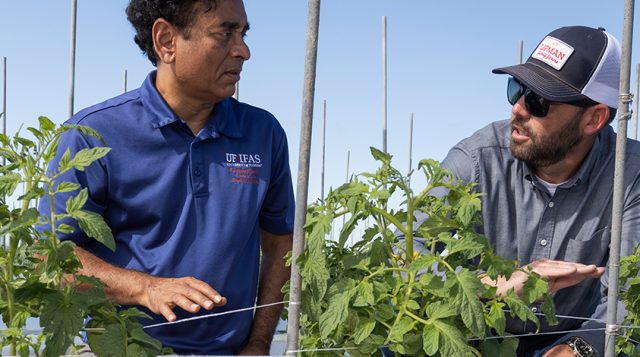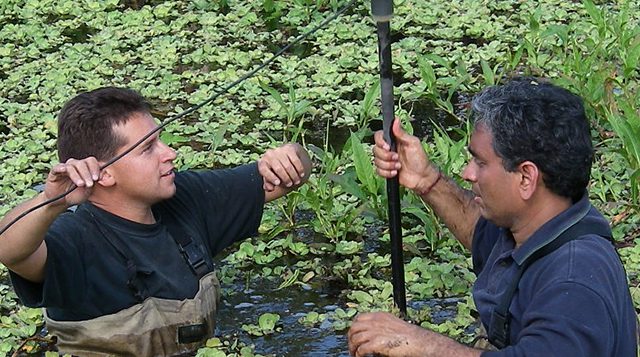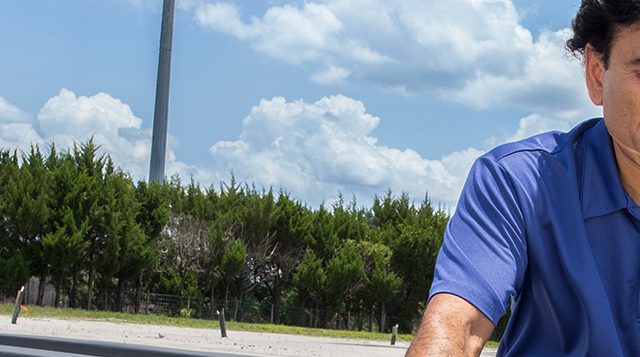Water Resources Engineering
The Water Resources program focus on assist growers in precise irrigation management, benefits of “water farming,” and alternative vegetable bed geometries to conserve fertilizer, water, and fumigation materials.
Research Areas
-
Water Use Sustainability
Studies in Water Use Sustainability are based on the following subtopics, which help in deciding water use based on crops, climate, and helps in optimization of production systems. the research also investigates the alternative water supplies for the future.
Crop Water Use
- Agricultural Crops:
- Large lysimeter facility for measurement of water and nutrient fluxes
- Vegetable, sugarcane, rice and bioenergy crops
- Natural systems (wetland)
- Eddy flux
Irrigation/Drainage for Current and Future Climates
- Traditional and Micro Irrigation Systems
- ET, soil moisture, & water-table based management for water conservation
- Tomato, Pepper, Watermelon, Bioenergy
- Development and field testing of management tools
Production System Optimization
- Vegetable bed geometry alternatives for enhanced water and nutrient use
- Organic amendments for increased sustainability
Alternative Water Supply for a Changing Climate
- Recycling agricultural drainage as a water supply source at the farm and watershed scale (citrus, vegetable, sugarcane)
- Agricultural Crops:
-
BMPs and Water Quality
Field and watershed scale research to provide land managers with options that improve water quality while preserving agriculture.
Water and Nutrient BMPs
- Current and Recommended water and nutrient inputs
Farm and Ranch-scale Nutrient Treatment BMPs
- Treatment Optimization
- Florida Agricultural Stormwater
- Treatment Guidelines Biomass harvesting
Ranch-scale Water Retention in Everglades Basin
- Dispersed water storage on working ranches to reduce harmful flows and nutrients to Lake Okeechobee, Everglades and estuaries
Cattle Crossing BMP
- Cost-effective nutrient reduction strategy
-
Payment for Environmental Services
This research elements goes in the details of the payments associated with the use of environmental services.
Water Storage and Treatment in Working Agricultural Systems
- Design and verification of a pilot PES program in the Northern Everglades Basin
- Landowners store water and receive payment for storing water and removing nutrients
- Integrated surface and ground water modeling to optimize water storage
Biodiversity Linkages
- Linking ranchland hydrology to ecology
- Plant (forage, obligate, & invasive) and animal (vertebrate & invertebrate)
Hydroecologic Modeling and Decision Support for PES
- Measurement, modeling, tradeoff analysis
- Tradeoffs: water availability versus native biodiversity; effects on stressors such as invasive plants and mosquitoes.
UF / IFAS SWFREC - Immokalee
2685 SR 29 N | Immokalee, FL 34142
(239) 658-3425




